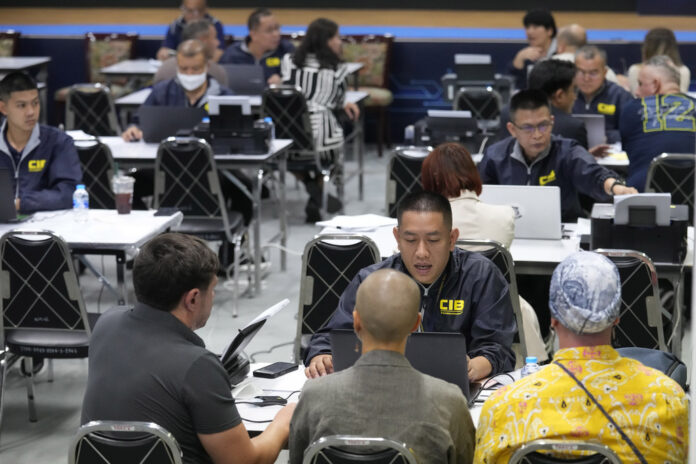Thailand Eases Foreign Business Law While Cracking Down on Nominee Structures and Visa Abuse
BANGKOK — April 22, 2025
In a significant move aimed at boosting economic competitiveness, Thailand’s Cabinet has approved amendments to the Foreign Business Act 1999, while simultaneously tightening enforcement against nominee structures and the abuse of student visas for illegal labor.
⚖️ Easing Restrictions on Foreign Investment
The Thai Cabinet approved in principle a proposal by the Department of Trade to revise the Foreign Business Act, aiming to:
- Remove excessive protectionism that currently hinders foreign participation in Thai companies
- Encourage economic growth, trade, and investment
- Enhance Thailand’s global competitiveness
Key reasons for amendment:
- The law, unchanged for nearly 25 years, is considered outdated.
- It poses significant barriers to startups and high-tech industries, where foreign investment is critical.
- Under current rules, a startup with increasing foreign investment may be reclassified as a foreign business, limiting its operations in restricted sectors.
The reform is supported or unopposed by multiple agencies, including:
- Ministry of Finance
- Ministry of Commerce
- Ministry of Labor
- Board of Investment (BOI)
- National Economic and Social Development Council (NESDC)
👷 Nominee Crackdown & Labor Law Violations
Simultaneously, authorities are intensifying investigations into nominee structures—where locals act as front owners for foreign nationals.
One high-profile case involves a State Audit Office building collapse, possibly involving illegal foreign engineering oversight linked to China Railway. Arrests have already been made, with some foreign nationals found working on student visas.
According to Somchai Morakotsriwan, Director-General of the Department of Employment:
“This is a labor law violation, not an immigration issue. Student visa holders are not authorized to work.”
The Department of Special Investigation (DSI) continues to pursue those using such structures to bypass Thai ownership regulations.
🎓 Stricter Oversight of Foreign Students
The Ministry of Higher Education, Science, Research and Innovation (MHESI) is also stepping in, working with the Immigration Bureau to investigate:
- Foreign students misusing education visas to work illegally
- Institutions complicit in allowing such practices
Actions underway include:
- Developing a central database of foreign students
- Enforcing stricter entry and monitoring measures
- Legal action against negligent or complicit institutions
Supamas Israphakdi, Minister of MHESI, is personally overseeing the reform to prevent Thailand from becoming a backdoor entry point for foreign labor under the guise of education.
📌 Summary
Thailand is attempting a dual-track strategy—liberalizing foreign investment laws to attract innovation and growth, while clamping down on loopholes exploited through nominee companies and student visas. The government’s approach signals a desire to modernize economic policy without compromising national security or regulatory integrity.





